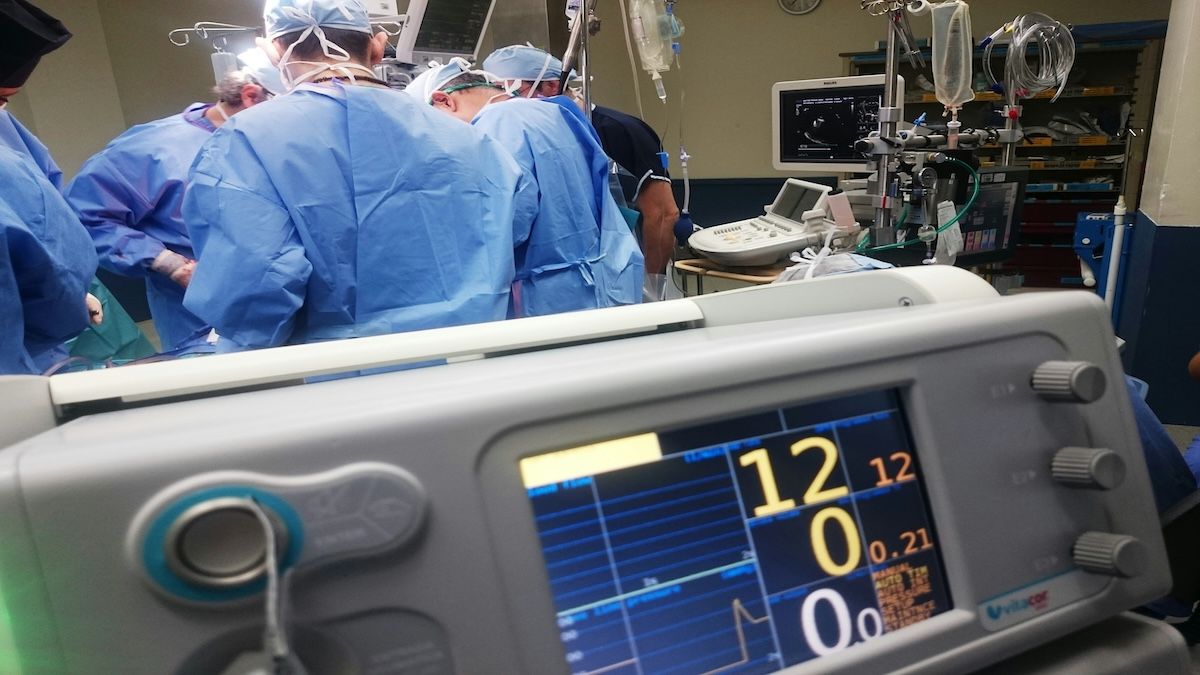Increasing Quality: A Healthcare Future Built With Accessible Technologies
Lidia Moura / Oct 9, 2024
Photo by Natanael Melchor on Unsplash
Lidia Moura, MD, PhD, MPH, is Director of Neurology Population Health and Director of the Center for Value-Based Healthcare and Sciences at Massachusetts General Hospital.
Following the ongoing drama of the US presidential campaigns, a quieter but equally urgent debate is unfolding within healthcare systems. American healthcare workers are facing unprecedented burnout, with nearly half reporting severe fatigue, emotional exhaustion, and a desire to leave the profession.
This silent crisis, now flagged by the World Health Organization as a “global health priority,” threatens not only the well-being of those who care for individuals but threatens the very stability of the U.S. healthcare infrastructure.
Yet the rise of large language models (LLMs) like ChatGPT may provide a new and innovative solution to alleviate some of the burdens faced by healthcare workers. Other innovations, such as brain-computer interfaces, can enhance assistive technologies and devices and improve patient monitoring. This vision is more than an abstract ideal; it is deeply personal.
My mother was recently hospitalized in a facility not listed among the top 10 hospitals in the U.S. As a physician, my hope was that her healthcare providers would employ the latest technological advancements, adhere to high standards, and provide her with the excellent care she deserves. It was not exactly the case. Her elective surgery proceeded without all the necessary supplies, causing delays and increasing the risk of complications. AI tools could have identified these missing materials in advance and prompted the surgeon to decide to postpone the surgery until all necessary materials were available, ensuring adherence to quality standards.
More broadly, AI and machine learning (ML) are transforming healthcare by optimizing surgical planning, resource allocation, and decision-making. Predictive analytics forecast case durations, and real-time decision support enhances precision in complex surgeries. These technologies may reduce human error and bolster supply chain resilience, ensuring critical resources are available when needed to prevent delays.
In hospitals and healthcare facilities across the country, regardless of ranking, technology can play a significant role in improving healthcare. For example, the use of Generative AI tools, like ChatGPT, that leverage large language models (LLM) to respond to prompts in clinical settings could help healthcare professionals communicate more effectively with patients and work more efficiently. For example, a generative AI tool like ChatGPT could be prompted to read a patient's message, classify its urgency, draft a response, and suggest action items. Such a tool would provide specific and valuable support to healthcare teams overwhelmed by the sheer volume of messages flowing through communication channels between patients and healthcare systems.
Similarly, an AI tool that is able to accurately summarize a patient's chart, suggest differential diagnoses, and identify potential quality measures to address in the upcoming visit could enable clinicians to concentrate on the most critical aspects of patient care, making their work not only more efficient but also more insightful.
Another groundbreaking area of innovation in healthcare technology is brain-computer interfaces (BCIs). These advanced systems convert neural signals into digital commands, offering new ways to restore mobility, communication, and function for patients suffering from stroke, spinal cord injuries, and neurodegenerative disorders. The potential of BCIs is enormous, but as these technologies develop at a rapid pace, it is essential to carefully consider their implementation in real-world settings.
However, technology alone won't solve healthcare problems. To truly transform healthcare, it is urgent to realign financial incentives to reward outcomes, not volume. This means moving away from fee-for-service models that encourage seeing more patients in less time, and instead, rewarding providers for achieving better health outcomes through personalized, thoughtful care. In addition to improving the incentive system, appropriate and rigorous methods of implementation and monitoring are essential to enable continuous improvement. Value-based care models – where providers are reimbursed for the quality rather than the quantity of care - have demonstrated significant promise. These models help lower costs, improve patient outcomes, and, importantly, reduce provider burnout by allowing healthcare professionals to spend more meaningful time with their patients.
When implemented effectively, AI and LLMs could strengthen these models through real-time data analytics, predictive modeling, and enhanced documentation support, optimizing care delivery while minimizing unnecessary expenses. However, achieving cost savings will depend on technology companies and entrepreneurs recognizing the societal need to make these platforms accessible and affordable for all healthcare providers.
Tech entrepreneurs may one day require care and would benefit from a system in which providers are not burned out, and care is delivered efficiently regardless of where someone lives.
Too often, the focus on technological breakthroughs overlooks crucial issues of fairness, equity, and financial sustainability, including who will have access to these advanced treatments, how they will be funded, and who will bear the costs. Failing to address these concerns risks creating a two-tiered healthcare system in which the benefits of technologies like brain-computer interfaces (BCIs) are reserved for only a privileged few.
To fully harness the potential of AI, LLMs, and BCIs, providers must ensure that their deployment addresses inequities in healthcare access. In many parts of the world, particularly in low- and middle-income countries, there is a severe shortage of healthcare providers. AI tools could help bridge this gap by providing decision support to less experienced practitioners, enabling them to deliver effective care.
To achieve these outcomes, a global commitment to equitable AI deployment is essential. To realize this vision, technology must be integrated with human-centered, value-based care. Governments, healthcare organizations, and technology developers must collaborate to create frameworks that support the responsible use of BCIs and LLMs, prioritize patient outcomes over profit, and address the root causes of burnout and inequities in healthcare.
The path forward may be challenging, but it is vital.
Multiple stakeholders must engage in rigorous research, come together to advocate for improved healthcare delivery systems and strive to align efficiency with quality incentives. The health of society – and the future many aspire to – depends on actions today.
Every patient deserves the best. So, it is urgent to strive for a healthcare system that truly serves everyone, everywhere.
Authors
